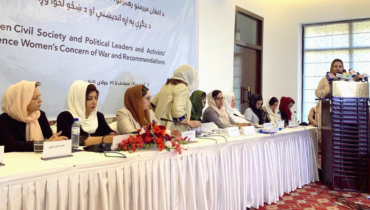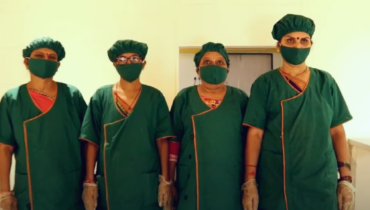For more than a decade, Mexican women have been the targets of unspeakable violence and torture throughout the country. As early as the 1990s, Ciudad Juarez made its way into international headlines for the outrageous number of femicides – sexual and gender-based hate crimes – occurring on a daily basis. With the increase in power, influence and brutality of drug cartels throughout Mexico, women have become both more insecure and neglected by state institutions. In 2008, Ciudad Juarez reportedly registered one woman missing every day, and the National Citizen Femicide Observatory claims that today six women are murdered every day throughout the country. UN officials claim that Mexico ranks among the 20 worst countries for violence against women in the world.
This summer, the prevalence of sexual and gender-based violence in Mexico has been attracting serious media attention and causing policymakers to take note. On July 21, dozens of women staged a protest in front of Mexico’s Interior Ministry in Mexico City against the high rates of domestic violence and the atmosphere of impunity that surrounds such crimes. Congresswomen joined activists to lay on the street and demand that the state establish a “gender alert” in Mexican municipalities. On July 28, three female judges, Catalina Ruiz Pacheco, Emma Terán Murillo, and Mirna Luz Rocha, sentenced five men to 697 years in prison each for killing 11 women. It was a monumental ruling for the future of women’s security throughout Mexico. By July 29, the government had established a gender alert for 11 municipalities in the state of Mexico, after authorities confirmed that systematic violence against women and girls is rampant throughout the state.
The mission to spread awareness of the insecurities that overwhelm Mexican women and their families started in full force earlier this year. Vice News published a story about 19-year-old Valeria Mora, whose parents had been searching for her for four months after her disappearance. At the end of the search, her father Roberto Mora watched “as workers pulled what appeared to be a skull from the muddy banks of a polluted canal on the outskirts of Mexico City.”
In recent years, Mexico City has been far surpassing Ciudad Juarez in the number of femicides per year. This bustling metropolitan city is the site of an undetermined number of femicides – often including rape or mutilation – that are rarely solved or investigated, in addition to startling levels of domestic violence. Mexico’s National Databank on Violence Against Women recorded a total of 12,950 cases of violence against women in the state of Mexico alone since 2012.
While the “War on Drugs” has militarized the security response to drug cartels throughout the state under President Enrique Peña Nieto, it also contributes to the neglect of women’s insecurities and persecution. Women have always been more susceptible to assault, abuse and mistreatment. This is, in large part, attributed to the unwavering culture of machismo in Mexico, as well as other Latin American countries, where hyper-masculinity often results in the mistreatment and abuse of women. This mentality was institutionalized in the Mexican judicial system by the consistent failure to pursue domestic violence cases, investigate rape and sexual assaults, and accurately record these occurrences. This level of severe neglect has created a long-standing atmosphere of impunity.
There are many complex reasons for the increasing levels of physical and personal insecurity for Mexican women. The overwhelming reason for the escalation of violence against women is the limitless cruelty and violence from drug cartels. Over the last decade, cartels have accumulated a significant amount of power and influence in every Mexican state, and their ruthlessness has intimidated government and security officials to submission. They target civilian women, particularly women journalists, activists and human rights defenders. This was the case on July 31, when photojournalist Rubén Espinosa, activist Nadia Vera, and three other women were found dead in his apartment. The women all showed signs of rape and torture, but initial news reports in Mexican media did not identify the women, and proceeded to question their character. Regardless of the violent targeting of women and their brutal murders, what recent news reports prove is that Mexican women are showing no sign in ending their resistance, calming their outrage or accepting this fate.
Through nonviolent demonstration, human rights advocacy and public opposition, women have been working to put an end to their insecurity and demand a resolution. Women’s rights groups and coalitions exist throughout Mexico. Although women human rights defenders have been targets for threats, intimidation and killings, they have not turned away from their dedication to the movement.
The July 28 femicide ruling was just the first step in repairing the systematically flawed judicial system throughout the country. The expectation for many women is that they will continue to see progress, while they work to defend their rights and safety. This expectation is certainly one that can be achieved, but it requires greater awareness and solidarity campaigns around the world. For many Mexican policymakers and citizens, these issues are still secondary and of less importance, and more often than not women are antagonized and slandered for having been “promiscuous,” “indecent” or of questionable moral integrity. The international community must realize that the security of women in Mexico has been severely compromised for nearly two decades, and this insecurity is accompanied by a disappointing level of apathy for human suffering. Mexican women’s rights activists and human rights defenders are now saying “no” – the world cannot shield their eyes any longer. It is time to take a stand, and realize the value of women’s security in an otherwise insecure and corrupt state.


